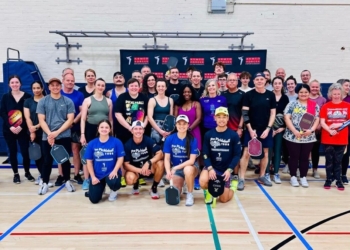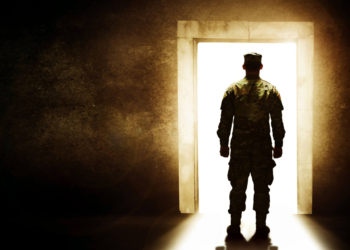Health and defense leaders participated in a town hall this month to address questions about COVID-19 vaccine distribution in the military community.
A recent survey by Blue Star Families revealed that, among respondents who did not plan to receive the vaccine or were undecided, 71% of respondents distrust the vaccine development process/timeline, while 70% expressed concerns about vaccine safety. With mixed information and rumors surrounding COVID-19 and its vaccines, Blue Star Families organized a virtual event with a panel of experts including Dr. Anthony Fauci, Secretary of Defense Lloyd Austin, and Secretary of Veterans Affairs Denis McDonough. The discussion was held as the DOD plans to expand vaccine distribution despite a recent announcement from defense officials that one-third of eligible active service members have already opted out of vaccination, according to the event’s press release.
How the vaccine works
The Pfizer and Moderna vaccines inject a genetic code that tells the body to make immunity-building proteins. The Johnson & Johnson vaccine uses a benign cold virus called adenovirus to trigger the immunity development. The end result is the same in all three vaccines, and none of the vaccines contain COVID-19. The Pfizer and Moderna vaccines reduce the risk of contracting COVID-19 by about 95%, and the Johnson & Johnson vaccine is presenting 72% effectiveness.
The rapid testing and approval of these vaccines gave some Americans pause. We learned, however, that in the history of vaccinology, the majority of adverse effects occur within 45 days after an individual’s last dose. This is why the FDA waited until 50% of trial participants were beyond 60 days of their last dosage with no sign of adverse effects before granting emergency authorization. Dr. Fauci shared that trials for the currently available vaccines indicate that “the likelihood of a late long-term problem is vanishingly small.”
What about the risks for pregnant women?
While no studies have been conducted to study the safety of these vaccines for pregnant women and fetuses, there have been many pregnant women who have elected to receive the vaccine because they work in healthcare settings. Based on that data, there hasn’t been evidence of risk to mother or child. Conversely, we know that contracting COVID-19 causes significant harmful effects to both mother and child. The bottom line is: the risk of the virus far outweighs the risk of the vaccine.
This is also why, although the majority of service members are young, strong, and healthy, getting the vaccine is highly encouraged for people of all ages and health statuses. Military work often happens in close quarters where social distancing isn’t possible and contracting and spreading the virus becomes exponentially easier. Although healthy individuals may not experience severe symptoms, they can accelerate the spread to others (family members, children’s school teachers, spouse’s coworkers, etc.) who may have underlying conditions that make the virus a very real threat to their life.
Force readiness
Dr. Fauci also points out that vaccination is a paramount part of national defense, and shared why getting the COVID-19 vaccine protects the integrity of the force.
“Vaccination against the many diseases [throughout history] has been important throughout the various conflicts we’ve been in,” he said.
And in fact, the US military has devoted enormous resources to developing defenses against diseases like yellow fever, HIV, and malaria ever since George Washington established an organized program to prevent smallpox in the Continental Army.
“A disease may not be prevalent in your own base,” Fauci continued, “but you still get vaccinated for a disease in a location where you’re going. Unfortunately for the world, COVID-19 is virtually everywhere.”
With the debate and misinformation surrounding the vaccines, talking to loved ones whose thoughts on the vaccine differ from yours can be difficult. Lt. Gen. Ronald Place, Director of the Defense Health Agency, offered advice for military families in this situation.
“Listen,” he said. “Listen to understand, not to respond. Some people may have an underlying medical condition that makes them wary of the unintended consequences that may come from a vaccine. Some are familiar with past injustices in our healthcare system and they mistrust that system. Some have heard of adverse effects after taking the vaccine and want to avoid them.”
Read comments







































